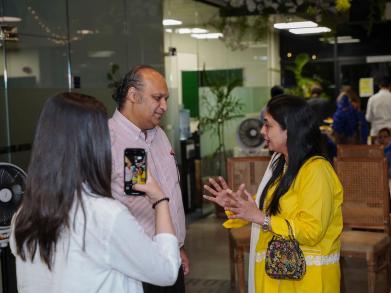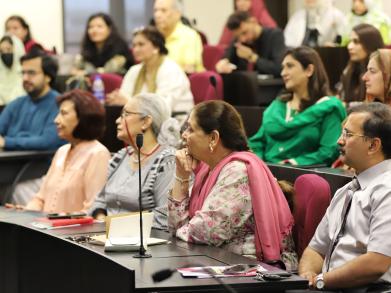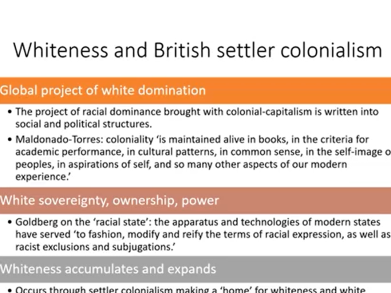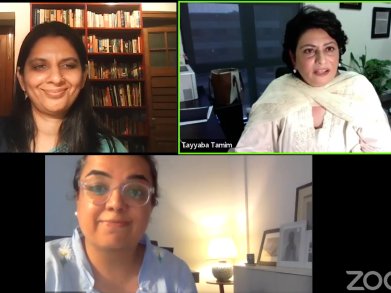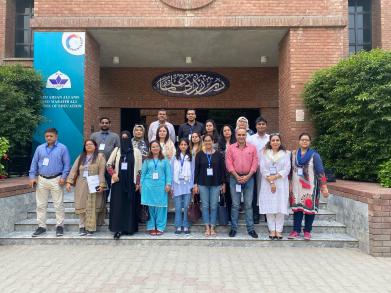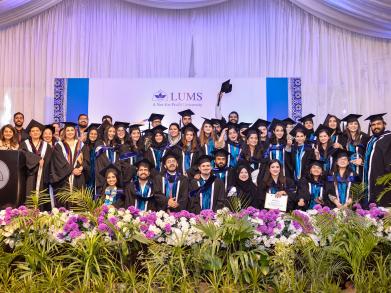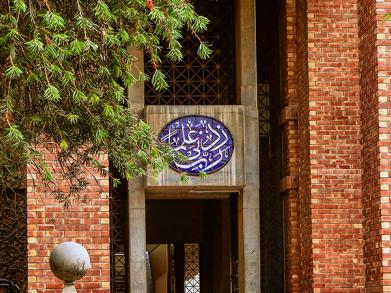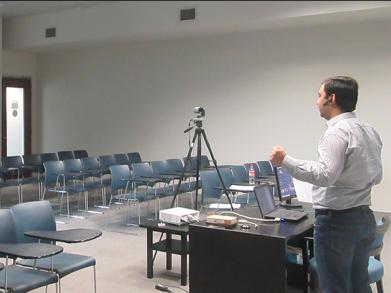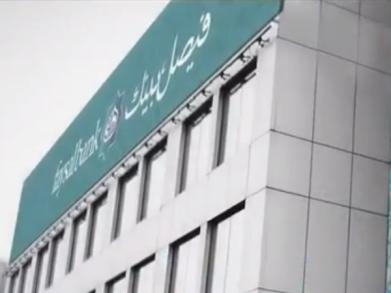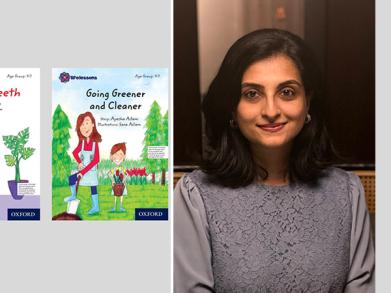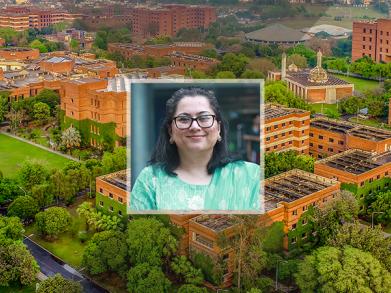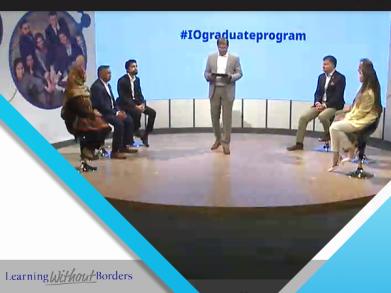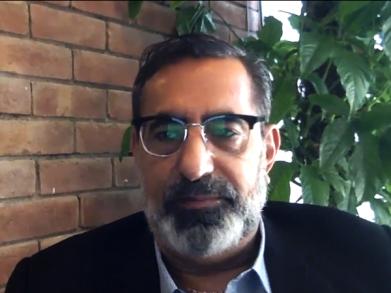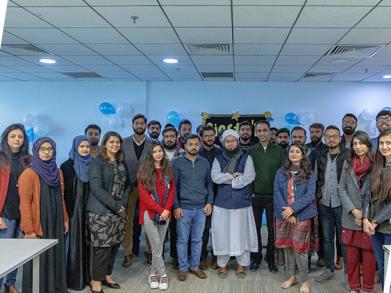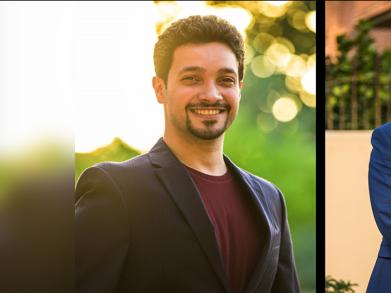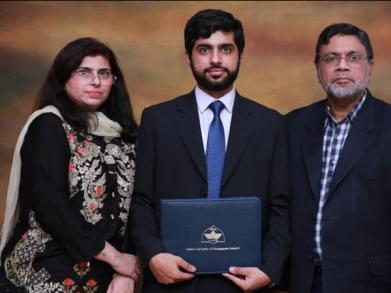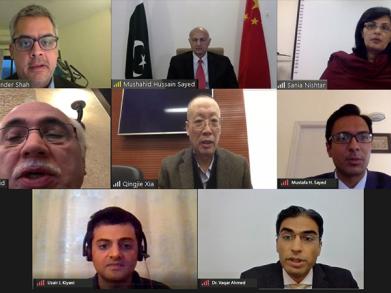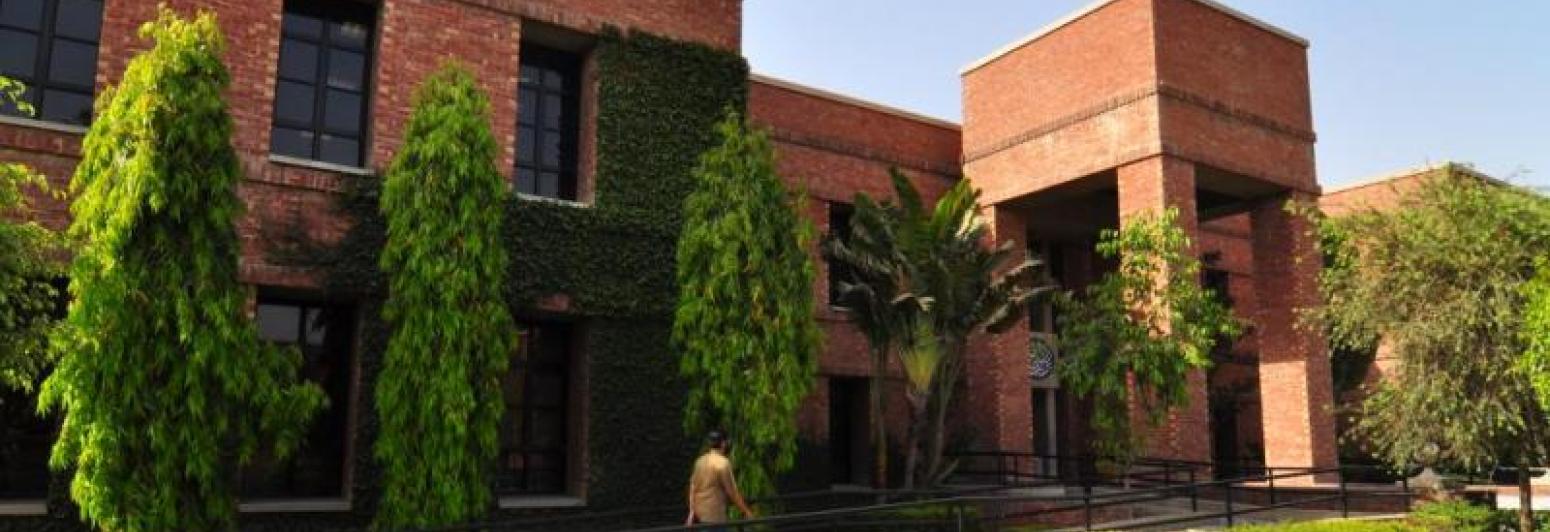
to
One of the most immediate impacts of the COVID-19 crisis has been its influence on the world’s economies, Pakistan included. In fact, as a nation with an already-strained economy that was just recovering from a crisis, this pandemic has hurtled the country back into financial problems.
Join the conversation during the sixth session of LUMS Live. Our distinguished panelists, Dr. Ali Cheema, Dr. Tahir Andrabi, Dr. Faisal Bari and Dr. Hadia Majid will discuss the economic aspects of the current situation and how to deal with them.
The session will be moderated by Mr. Adeel Hashmi and broadcast live via the LUMS Facebook page. Profiles of our panelists are given below.
Please log on to https://www.facebook.com/lahoreuniversityofmanagementsciences and listen to our panelists as they share their insights on how Pakistan’s economy will be affected by the pandemic.
During the session, please use the live stream's comments bar to ask questions or email your questions to ask@lums.edu.pk. After the session, please give us your feedback and suggest future topics for discussion/guests at the following link: https://forms.gle/RHbDRTUUEADfdwUq5
Profiles of Panelists
Dr. Tahir Andrabi, Dean, School of Education, LUMS
Dr. Tahir Andrabi is also a Professor of Economics at Pomona College, USA and has been a visiting scholar at MIT, a research associate at LSE and a consultant for the World Bank. He is a co-founder of the Center for Economic Research in Pakistan (Lahore). His research on the quality of primary education in rural Punjab (LEAPS) has been funded over the last 15 years by the World Bank, National Science Foundation, Economic and Social Research Council and by the DFID-funded Research in Systems of Education project. As the principal investigator on a grant to evaluate recovery from the October 2005 Pakistan earthquake, he co-founded the website, risepak.com, to help coordinate relief in the aftermath of the earthquake, which received the Stockholm Challenge Award (2006). He has published extensively in major economics and education journals.
Dr. Ali Cheema, Director, Mahbub ul Haq Research Centre and Associate Professor, Department of Economics, School of Humanities and Social Sciences, LUMS
Dr. Ali Cheema is co-lead academic of the LSE-Oxford based International Growth Centre’s Pakistan programme and was a founding member of the 2006 Stockholm Challenge Award winning portal, Relief Information System for Earthquakes, Pakistan (risepak.com ). His recent work is on governance, public finance, and human capital acquisition, which has published in leading international journals and conferences. A Rhodes Scholar, he holds a BA (Hons) in Politics and Economics from Oxford and a PhD in Economics from Cambridge. He has served as a member of Pakistan’s National Finance Commission and was a Fulbright Scholar at Harvard.
Dr. Faisal Bari, Associate Professor, Department of Economics, School of Humanities and Social Sciences and Associate Professor, Education, School of Education (joint appointment), LUMS
Dr. Faisal Bari is also the Director of Academic Programmes at the School of Education at LUMS. His current teaching interests are in the areas of philosophy of education inclusion, economics of education, game theory, microeconomics and industrial organisation. His research interests are also in the same areas. He writes a fortnightly column for the daily, Dawn.
Dr. Hadia Majid, Assistant Professor, Department of Economics, School of Humanities and Social Sciences, LUMS
A Fulbright Scholar, Dr. Hadia Majid holds a PhD in Development Economics from The Ohio State University. Her research interests include economics of the household, parental decision-making, and human capital acquisition. Her earlier work evaluates the Mexican conditional cash transfer programme at the intra-household level and micro-impacts of the Lahore Metrobus. Currently, she is focused on labour markets in Pakistan. Here, her projects include mapping various aspects of the female labour force participation in Pakistan over the past 30 years, examining the constraints and vulnerabilities of women in the urban informal economy, the links between macroeconomic growth and gendered employment, and the impact of BISP on women's labour market outcomes and decision-making. Her research informs her teaching across a spectrum of courses and guides her consulting with governmental bodies and International Agencies alike.



